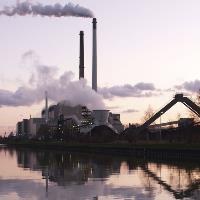(BRUSSELS) – After months of negotiations, the European institutions agreed the 8th Environment Action Programme Wednesday, setting the objectives for EU environmental policy up to 2030, and conditions to achieve them.
The 8th EAP includes provisions for putting human and planetary wellbeing – rather than GDP growth – at the heart of EU policy making, and advancing towards a ‘wellbeing economy’.
The agreed 8th EAP has six priority objectives related to climate neutrality, climate adaptation, circular economy, zero pollution, protecting and restoring biodiversity, and reducing environmental and climate pressures related to production and consumption.
In addition, the programme sets out an enabling framework and a monitoring framework to measure progress towards the required systemic change.
The provisional agreement was welcomed by the European Commission. “The 8th Environment Action Programme is the EU’s joint programme for implementing the European Green Deal on the ground until 2030,” said Environment Commissioner Virginijus Sinkevicius: “It enshrines in a legal framework EU environment and climate objectives, as well as a mechanism to monitor progress ‘beyond GDP’. This further strengthens our collective capacity to tackle the interlinked crises of climate change, biodiversity loss and pollution in order to create a truly sustainable future for the generations to come”.
However, environmental group WWF, while welcoming the agreement, saw it as an opportunity missed: “they missed a critical opportunity to set an end date for public finance for fossil fuels and environmentally harmful activities, despite EU leaders having repeatedly stated their intention to phase such finance out.” According to WWF, over EUR 52 billion of taxpayers’ money goes annually to fossil fuels alone.
However, it added that the European Parliament did manage to secure the commitment that a deadline for phasing out fossil fuels will be proposed and that it should be in line with 1.5°C.
The 8th EAP also requires that the cost of inaction on the climate and biodiversity crisis needs to be considered by policy makers when making new proposals, and progress towards the 8th EAP’s objectives will now have to be debated annually by the EU institutions, offering the opportunity to step up actions when necessary.
WWF is now urging the Commission to come forward with “a proposal for a legally binding deadline for phasing out fossil fuel subsidies without delay”.
The European Parliament and Council will confirm the provisional agreement through the respective channels. The text will undergo lawyer linguists revisions before being formally signed into law and being officially published in the Official Journal of the European Union.


